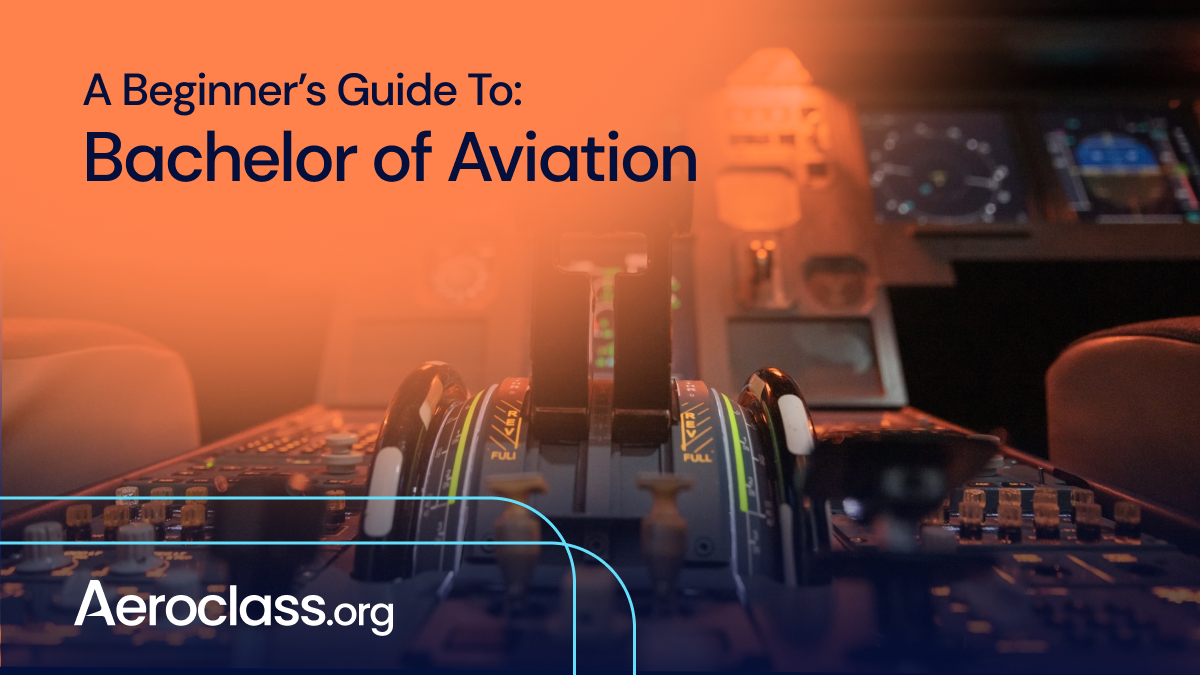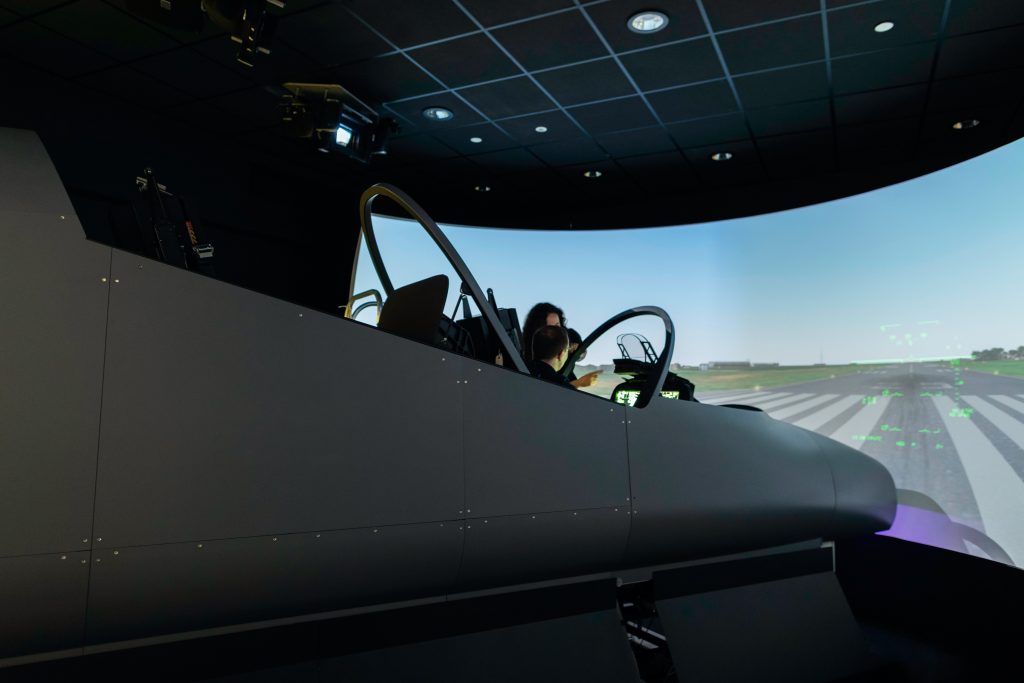The Paramount Importance of Safety Management in Aviation
Other · 3 min read
Whether you are planning a trip or just dreaming of one, check our recommendations for the best airlines to fly to Japan!

BSc Aviation refers to a Bachelor’s degree program in the sciences related to aviation. Although many people immediately think this is about commercial airplanes, the truth is that BSc Aviation is generally broader since it covers the science behind different flying machines such as helicopters, gliders, and military jets as well.
Also, a BSc Aviation course will not only help the graduate to work for an airline or an aircraft manufacturer as many people may think, but it will open doors in any organization within the industry including those dedicated to airport management and aerospace developments.
So, if you want to learn about BSc Aviation in detail, we invite you to keep reading as we describe all you need to know down below.

First, let’s talk about what aviation science includes. Aviation is a science that studies all things related to aircraft including operations, and support systems. This means that it covers topics of the science stream such as physics, chemistry, and mathematics.
An alternative to the BSc Aviation program is the BBA in Aviation which offers a different approach by adding the business and air regulations involved in the aviation industry, although most BSc Aviation programs also include the latter since regulations are essential for everyone working within the industry.
Both programs will open the door to flight training, so if flying is the ultimate goal, then any of them will do.
This is a very subjective matter, but we will do our best to give the most objective answer possible.
While there are different ways to start a career in aviation, the BSc Aviation course may be the best option for those interested in learning the essence of aircraft design, development, remodeling, and actually flying them.
On the other hand, a BA in Aviation will be better suited for those who are more interested in the business and management aspects of air transportation without getting into the scientific details.
In any case, since both BSc Aviation and BBA in Aviation allow flight training, these two could be the best options to eventually become a commercial pilot. However, many people believe having the science stream knowledge is a better option in this case.
Moreover, the best aviation undergraduate course will also cover other important areas of the industry such as air traffic management, airport management, airline management, and aircraft maintenance. Therefore, this kind of program will open many doors for professionals looking to launch a career in aviation.
Now, which one is better? You may still wonder.
The truth is that it will depend on what you actually want to achieve or who you want to become. For example, if you would like to be a flight test engineer or an air traffic controller, perhaps the BSc Aviation would be better.
Yet, if you are more up to managing an airport or becoming a cargo manager, then the BBA bachelor’s degree could give you the best tools for it. It all comes down to the core subjects you will find in each program. Let’s take a quick look at them.
In a BBA program, you may expect to see some subjects that are common with a BSc program. Yet, the core will be different. Therefore, the main subjects are usually focused on managerial aspects. It generally involves subjects like the ones in the following list:
As you may expect, the main subjects within this program cover the scientific aspects that support aircraft design and operations, so subjects about areas like aircraft and engine design and operation are mandatory. However, it also includes subjects about areas such as meteorology and air regulations. Here is a list of common subjects to illustrate:
The first requirement you will find is having a basic understanding of the most relevant scientific subjects such as mathematics, physics, and chemistry. From then on, the requirements may vary from one university or college to another. However, most of the time they involve the following:

We already mentioned that a BSc in Aviation opens many doors within the industry. However, there are some roles that are more likely to be taken by a BSc graduate. As you may expect, those roles are the ones that relate the most to the scientific aspects of the industry. Here is a short list:
While there are some managerial positions mentioned in the previous point, it is more likely for a BBA graduate to get them. Yet, there are more. Here are common positions taken by BBA graduates:
It is obvious that the salary depends on many variables like the specific position, the aviation firm offering the job position, the experience, and other credentials the professional may possess. However, according to collegedunia.com, the average salary for the graduates is 4.25 Lakhs per annum, which means 425,000 Indian Rupees a year.
In general, the salary ranges between 2 and 6 Lakhs, or 200,000 and 600,000 Indian Rupees a year, according to shiksha.com. Yet, payscale.com shows a more optimistic number, pointing to a salary of 750,000 Indian Rupees per year for a Bachelor of Science in Aviation graduate. This would be close to 10,000 US dollars.
When looking at the stats, there is clearly a big gap between the salary in India and the United States. Of course, this can be associated with the different economic situations in each country. In the United States, the average salary for a graduate with a Bachelor of Science in Aviation goes up to 80,000 US dollars a year according to payscale.com. This means the average salary is 8 times higher when compared to the salary in India.
Yet, this will vary greatly as we mentioned before, and there will be occasions when a graduate in the US will earn the same as one in India.
So far, we have made it clear that any BSc course, and even a BBA course, will open the door for professionals to become pilots. Yet, we have only mentioned the general BSc in Aviation while there are more specific programs. The following are the most recommended BSc courses to become a pilot:
We know you may be wondering why the last three are on the list. The truth is that while they do not prepare you directly to become a pilot, they will arm you with the credentials to pursue further studies and the training to become one. Moreover, those are areas that may open other types of opportunities within the aviation industry.

Many will argue that the best schools to study a BSc in Aviation are colleges and universities located in the United States. However, there are many other schools all over the world dedicated to offering great aviation education.
For example, taking from the list of programs above, one of the most concentrated programs for pilots, the Bachelor of Science in Professional Pilot is offered by the University of Nyiregyhaza in Hungary.
Keeping this in mind, here is a list of the top 5 schools to study BSc in Aviation around the world. No particular order was used for the list.
This university offers a 3-year Bachelor of Aviation program with a specialization in Air Transport Pilot.
It offers an Aviation Management program that allows students to receive a Business Management diploma with a specialization in Aviation Management thanks to a partnership with Transport Canada’s approved training centers.
The University of South Australia offers a Bachelor of Aviation with a focus on management, specifically dedicated to building knowledge and developing skills in areas like in-flight and airport operations with an emphasis on safety, operations management, airline finance, and operations, as well as aviation law and management.
Of course, the US could not be left out of the list. The University of Cincinnati particularly excels for its Aviation Technology program that combines a wide range of on-the-ground skills with pilot training, including aerial services such as sight-seeing flights, photography & surveying, emergency medical services, and more.
This is a special mention because the University College Dublin stands out more for a postgraduate program focused on Aviation Finance, the only Aviation Finance degree offered in Europe. Yet, it is a great option for those seeking further studies within the industry.
Whatever program you take, keep in mind that most of the time these schools offer programs accredited by the Aviation Accreditation Board International. This means they are in line with the demanding standards of the aviation industry.
In any case, the school does not make the student. In the end, is the will of the students to learn and develop their own skills that help them become successful.
Another point you may want to keep in mind is that full programs take time and money. A BSc in Aviation is a minimum of 3 years long, and the fees can be very high. If you are just testing the waters to make sure the aviation industry is where you belong, it may be a better idea to check an introductory course first before enrolling in a full bachelor’s program.